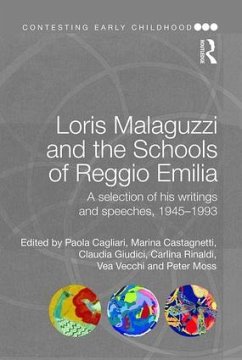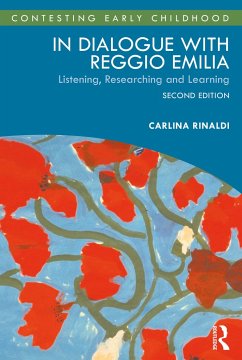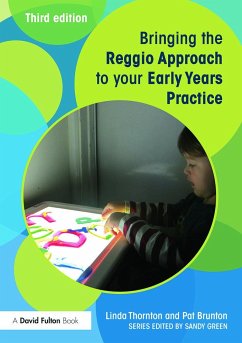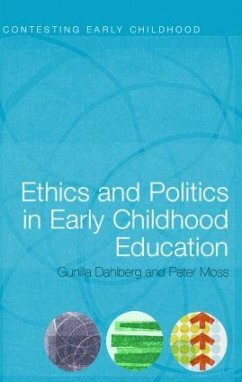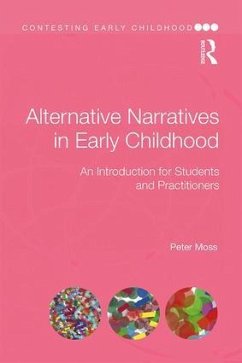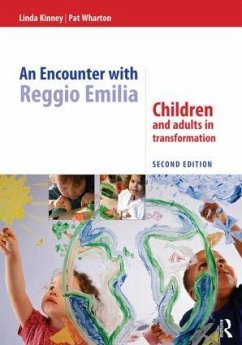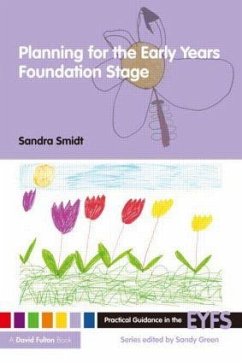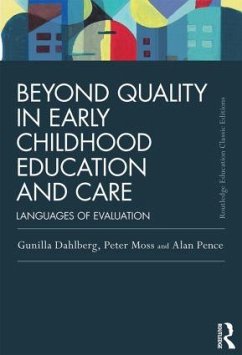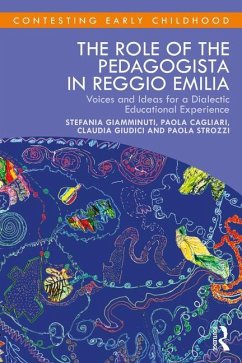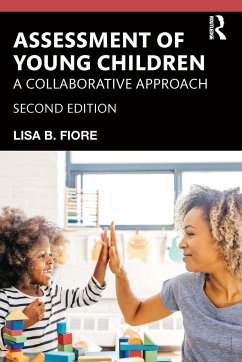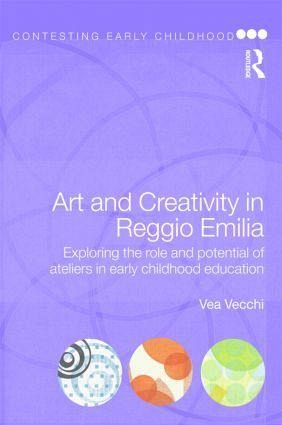
Art and Creativity in Reggio Emilia
Exploring the Role and Potential of Ateliers in Early Childhood Education
Versandkostenfrei!
Versandfertig in 6-10 Tagen
59,99 €
inkl. MwSt.
Weitere Ausgaben:

PAYBACK Punkte
30 °P sammeln!
This book explores the contribution of and art and creativity to early education, and examines the role of the atelier (an arts workshop in a school) and atelierista (an educator with an arts background) in the pioneering pre-schools of Reggio Emilia. It does so through the unique experience of Vea Vecchi, one of the first atelieristas to be appointed in Reggio Emilia in 1970.Part memoir, part conversation and part reflection, the book provides a unique insider perspective on the pedagogical work of this extraordinary local project, which continues to be a source of inspiration to early childh...
This book explores the contribution of and art and creativity to early education, and examines the role of the atelier (an arts workshop in a school) and atelierista (an educator with an arts background) in the pioneering pre-schools of Reggio Emilia. It does so through the unique experience of Vea Vecchi, one of the first atelieristas to be appointed in Reggio Emilia in 1970.
Part memoir, part conversation and part reflection, the book provides a unique insider perspective on the pedagogical work of this extraordinary local project, which continues to be a source of inspiration to early childhood practitioners and policy makers worldwide.
Vea's writing, full of beautiful examples, draws the reader in as she explains the history of the atelier and the evolving role of the atelierista. Key themes of the book include:
- processes of learning and knowledge construction
- the theory of the hundred languages of childhood and therole of poetic languages
- the importance of organisation, ways of working and tools, in particular pedagogical documentation
- the vital contribution of the physical environment
- the relationship between the atelier, the atelierista, the school and its teachers
This enlightening book is essential reading for students, practitioners, policy makers and researchers in early childhood education, and also for all those in other fields of education interested in the relationship between the arts and learning.
Part memoir, part conversation and part reflection, the book provides a unique insider perspective on the pedagogical work of this extraordinary local project, which continues to be a source of inspiration to early childhood practitioners and policy makers worldwide.
Vea's writing, full of beautiful examples, draws the reader in as she explains the history of the atelier and the evolving role of the atelierista. Key themes of the book include:
- processes of learning and knowledge construction
- the theory of the hundred languages of childhood and therole of poetic languages
- the importance of organisation, ways of working and tools, in particular pedagogical documentation
- the vital contribution of the physical environment
- the relationship between the atelier, the atelierista, the school and its teachers
This enlightening book is essential reading for students, practitioners, policy makers and researchers in early childhood education, and also for all those in other fields of education interested in the relationship between the arts and learning.





